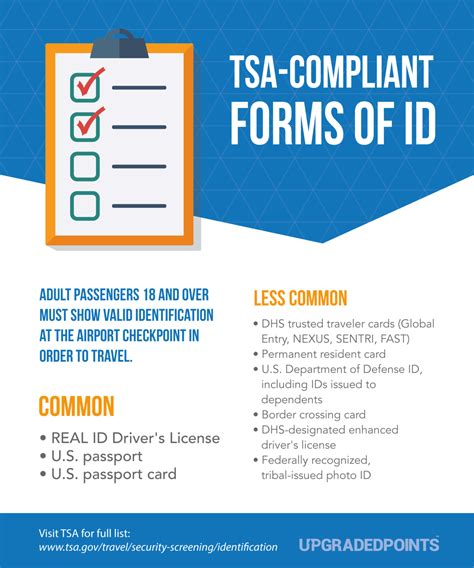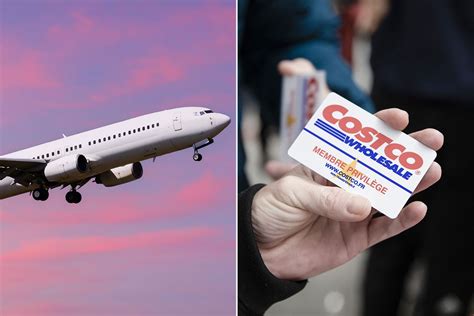
The Transportation Security Administration (TSA) has officially ceased accepting Costco membership cards as a valid form of identification at airport security checkpoints nationwide, requiring travelers to present more conventional forms of identification like driver’s licenses or passports. The change, effective immediately, aligns with the TSA’s stringent security protocols aimed at verifying passenger identity.
The TSA confirmed the policy shift, emphasizing that Costco membership cards do not meet the agency’s security standards for acceptable identification. “TSA officers must confirm the identity of travelers before they are permitted to enter the secure area of an airport,” the agency stated. “Acceptable forms of identification are unexpired driver’s licenses, passports, and other government-issued IDs.” This move seeks to eliminate potential vulnerabilities associated with less secure forms of identification and ensure a consistent and reliable screening process for all travelers.
The agency’s decision stems from concerns over the ease with which Costco cards can be obtained, duplicated, or altered, making them unreliable for verifying identity in a high-security environment. Unlike state-issued driver’s licenses or passports, Costco cards lack the security features and verification processes necessary to meet TSA’s requirements.
The TSA maintains a comprehensive list of acceptable identification documents on its website, urging travelers to familiarize themselves with the guidelines before arriving at the airport. Acceptable forms of ID include:
- U.S. passport
- U.S. passport card
- Driver’s license or other state photo identity card issued by the Department of Motor Vehicles (or equivalent)
- REAL ID-compliant driver’s license or other state photo identity card
- U.S. military ID
- Permanent resident card
- Border crossing card
- DHS-designated enhanced driver’s license
- Federally recognized, tribal-issued photo ID
- Canadian driver’s license or Indian and Northern Affairs Canada card
- Transportation Worker Identification Credential (TWIC)
- Native American tribal document
- Airline or airport-issued ID (if issued under a TSA-approved security plan)
- Registered Traveler card (e.g., TSA PreCheck)
- Foreign government-issued passport
- U.S. Citizenship and Immigration Services Employment Authorization Card (I-766)
The TSA’s announcement serves as a reminder to travelers to double-check their identification before heading to the airport to avoid potential delays or complications during the security screening process. Passengers who arrive at the checkpoint without acceptable identification may face additional screening procedures, which could include identity verification through alternative means or denial of entry into the secure area.
Background on TSA Identification Requirements
The Transportation Security Administration (TSA) was established in the aftermath of the September 11, 2001, terrorist attacks with a mandate to strengthen the security of the nation’s transportation systems. A core component of the TSA’s mission is ensuring that individuals boarding commercial aircraft are properly identified and do not pose a security threat.
The TSA’s identification requirements have evolved over the years in response to emerging threats and technological advancements. Initially, the emphasis was on verifying photo identification to match the passenger’s boarding pass. Over time, the TSA has implemented more stringent standards, including the requirement for REAL ID-compliant driver’s licenses, to enhance the security and reliability of the identification process.
The REAL ID Act, passed by Congress in 2005, established minimum security standards for state-issued driver’s licenses and identification cards. The Act prohibits federal agencies from accepting driver’s licenses and identification cards from states that do not meet these standards for official purposes, such as boarding commercial aircraft. The deadline for full REAL ID compliance has been extended multiple times, with the current deadline set for May 7, 2025.
The TSA’s identification verification process involves several layers of security. TSA officers visually inspect the identification document to ensure it is authentic and has not been tampered with. They also compare the photograph on the ID to the passenger’s appearance to confirm identity. In some cases, TSA officers may use electronic readers to verify the information encoded on the ID, such as the passenger’s name, date of birth, and address.
The TSA also utilizes advanced technology, such as facial recognition, to enhance its identity verification capabilities. Facial recognition technology can quickly and accurately match a passenger’s face to the photograph on their identification document, helping to identify potential imposters or individuals using fraudulent IDs.
Implications for Travelers
The TSA’s decision to ban Costco cards as a valid form of identification may have several implications for travelers. First, it underscores the importance of carrying acceptable identification when traveling by air. Passengers who previously relied on their Costco cards for identification will now need to ensure they have an alternative form of ID, such as a driver’s license, passport, or other government-issued ID.
Second, the change may cause confusion or inconvenience for some travelers, particularly those who are not aware of the new policy. Passengers who arrive at the airport with only a Costco card may be turned away and required to obtain acceptable identification before being allowed to board their flight. This could result in delays, missed flights, and added stress for travelers.
Third, the TSA’s decision highlights the ongoing need for travelers to stay informed about evolving security procedures and identification requirements. The TSA regularly updates its policies and procedures in response to emerging threats and technological advancements, and it is important for travelers to stay abreast of these changes to avoid potential problems at the airport.
The TSA provides a variety of resources to help travelers understand its security procedures and identification requirements. The TSA website includes a comprehensive list of acceptable forms of identification, as well as tips for preparing for airport security screening. Travelers can also contact the TSA Contact Center for assistance with any questions or concerns they may have.
Impact on Costco Members
The TSA’s decision is unlikely to have a significant impact on Costco’s business operations. While some Costco members may have occasionally used their membership cards as a form of identification at airport security checkpoints, the vast majority of members likely rely on other forms of ID, such as driver’s licenses or passports, when traveling by air.
However, the change may serve as a reminder to Costco members of the limited utility of their membership cards as a form of identification. Costco cards are primarily intended for use within Costco warehouses to verify membership status and facilitate purchases. They are not designed to meet the stringent security standards required for government-issued identification documents.
Costco offers a variety of benefits to its members, including access to exclusive products and services, discounts on travel and entertainment, and cash back rewards. While the loss of Costco cards as a form of identification at airport security checkpoints may be a minor inconvenience for some members, it is unlikely to detract from the overall value proposition of a Costco membership.
TSA’s Ongoing Efforts to Enhance Security
The TSA’s decision to ban Costco cards as a valid form of identification is just one example of the agency’s ongoing efforts to enhance security at the nation’s airports. The TSA is constantly evaluating and updating its security procedures in response to emerging threats and technological advancements.
Some of the other initiatives the TSA has implemented to enhance security include:
- Advanced Imaging Technology (AIT): AIT uses non-invasive scanning technology to detect concealed weapons and other prohibited items on passengers.
- Explosives Detection Systems (EDS): EDS uses sophisticated technology to detect explosives in checked baggage.
- Behavior Detection Officers (BDOs): BDOs are trained to identify suspicious behavior and refer individuals for additional screening.
- Random Security Measures: The TSA employs a variety of random security measures to deter and detect potential threats.
- TSA PreCheck: TSA PreCheck is an expedited screening program that allows pre-approved travelers to bypass certain security procedures, such as removing shoes and belts.
The TSA also works closely with other government agencies, law enforcement, and the intelligence community to share information and coordinate security efforts. The agency is committed to providing a safe and secure travel experience for all passengers.
Legal and Policy Considerations
The TSA’s authority to set identification requirements for airport security checkpoints is derived from federal law and regulations. The Aviation and Transportation Security Act (ATSA), passed by Congress in 2001, established the TSA and gave it broad authority to regulate security in the nation’s transportation systems.
The TSA has issued regulations that specify the types of identification documents that are acceptable for boarding commercial aircraft. These regulations are based on the TSA’s assessment of the security risks associated with different types of identification documents.
The TSA’s decision to ban Costco cards as a valid form of identification is consistent with its legal authority and its mission to enhance security at the nation’s airports. The TSA has determined that Costco cards do not meet the agency’s security standards for acceptable identification and that allowing them to be used as identification could pose a security risk.
The TSA’s decision has been subject to legal challenges in the past. Some individuals have argued that the TSA’s identification requirements are overly burdensome and violate their privacy rights. However, courts have generally upheld the TSA’s authority to set reasonable identification requirements for airport security checkpoints.
Public Reaction and Debate
The TSA’s announcement regarding Costco cards generated a mixed reaction from the public. Some travelers expressed support for the decision, citing concerns about security and the potential for fraudulent use of Costco cards. Others voiced frustration and inconvenience, particularly those who had previously relied on their Costco cards for identification.
Social media platforms became a forum for debate, with users sharing their opinions and experiences with airport security procedures. Some users questioned the logic behind the ban, arguing that Costco cards are widely accepted and easily verifiable. Others defended the TSA’s decision, emphasizing the need to prioritize security and maintain consistent identification standards.
Industry experts also weighed in on the issue, offering insights into the rationale behind the TSA’s decision and the potential implications for travelers. Security analysts noted that Costco cards lack the security features and verification processes necessary to meet TSA’s requirements, making them unreliable for verifying identity in a high-security environment. Travel industry representatives advised travelers to familiarize themselves with the TSA’s list of acceptable identification documents and to ensure they have proper identification before arriving at the airport.
The Future of Airport Security Identification
The TSA’s decision to ban Costco cards as a valid form of identification reflects a broader trend toward enhanced security measures and more stringent identification requirements in the aviation industry. As technology evolves and new threats emerge, the TSA is likely to continue to update its security procedures and identification requirements to ensure the safety and security of air travel.
One potential future development is the increased use of biometric identification technology, such as facial recognition and fingerprint scanning, at airport security checkpoints. Biometric identification technology offers the potential to quickly and accurately verify passenger identity, reducing the risk of fraud and improving the efficiency of the screening process.
Another potential development is the expansion of trusted traveler programs, such as TSA PreCheck, which allow pre-approved travelers to bypass certain security procedures. Trusted traveler programs can help to expedite the screening process for low-risk travelers, freeing up resources for the TSA to focus on higher-risk individuals and threats.
Ultimately, the goal of airport security identification is to balance the need for security with the desire for convenience and efficiency. The TSA is committed to working with stakeholders to develop and implement security procedures and identification requirements that achieve this balance and ensure a safe and secure travel experience for all passengers.
FAQ Section:
1. Why did the TSA stop accepting Costco cards as a valid form of ID?
The TSA stopped accepting Costco cards because they do not meet the agency’s security standards for verifying identity. According to the TSA, these cards lack the necessary security features and verification processes compared to government-issued IDs like driver’s licenses or passports, making them susceptible to fraud or duplication.
2. What forms of identification are now required at airport security checkpoints?
The TSA accepts a variety of identification documents, including:
- U.S. passport
- U.S. passport card
- Driver’s license or other state photo identity card issued by the Department of Motor Vehicles (or equivalent)
- REAL ID-compliant driver’s license or other state photo identity card
- U.S. military ID
- Permanent resident card
- Border crossing card
- DHS-designated enhanced driver’s license
- Federally recognized, tribal-issued photo ID
- Canadian driver’s license or Indian and Northern Affairs Canada card
- Transportation Worker Identification Credential (TWIC)
- Native American tribal document
- Airline or airport-issued ID (if issued under a TSA-approved security plan)
- Registered Traveler card (e.g., TSA PreCheck)
- Foreign government-issued passport
- U.S. Citizenship and Immigration Services Employment Authorization Card (I-766)
3. What happens if I arrive at the airport with only a Costco card?
If you arrive at the airport with only a Costco card, you will likely be required to undergo additional screening procedures. This may include providing alternative forms of identification or answering additional questions to verify your identity. In some cases, you may be denied entry into the secure area of the airport if you cannot adequately verify your identity.
4. Is there a grace period for this new policy, or is it effective immediately?
The policy change is effective immediately. Travelers are now required to present acceptable forms of identification as listed on the TSA website.
5. Where can I find a complete list of acceptable forms of identification for TSA security checkpoints?
You can find a complete list of acceptable forms of identification on the TSA website: www.tsa.gov. It is recommended to check the website before traveling to ensure you have the proper identification to avoid delays or complications.









